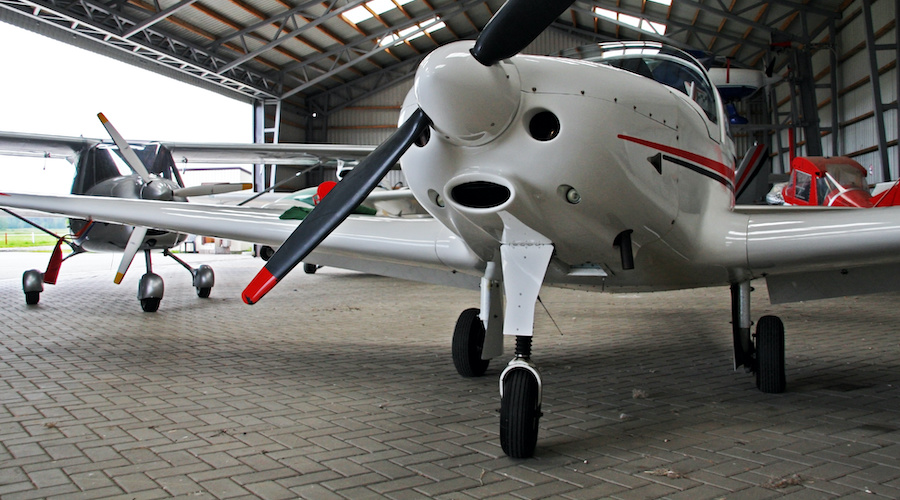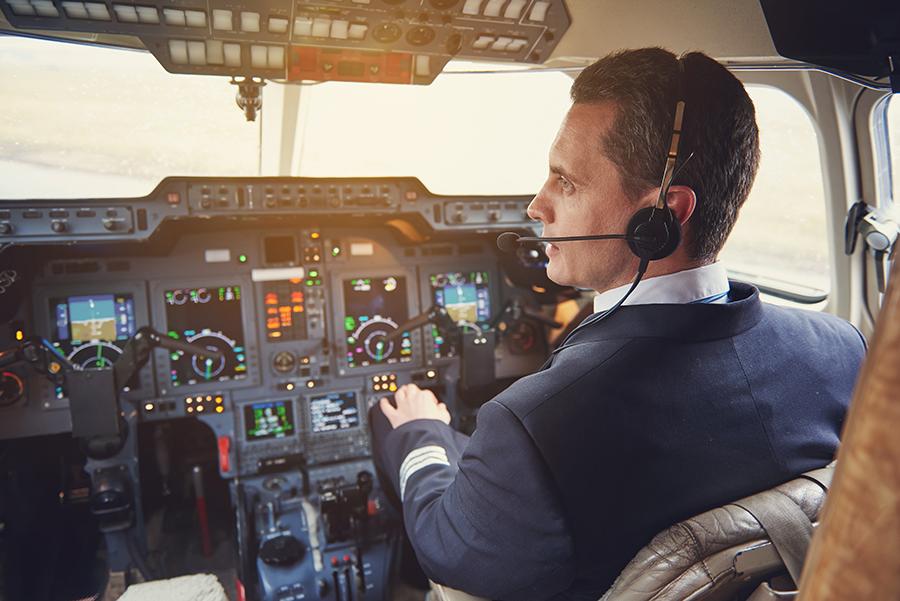So you are looking for a good flight school. Perhaps you’ve just had an introductory/discovery flight, and you thoroughly enjoyed it. Maybe it confirmed what you already knew in your heart – that you really, really want to learn to fly light aircraft.
Or perhaps you’re much further on – you’ve finished your PPL and hour building and you’re now looking for a school where you should do the CPL course.
Whatever stage you’re at, you’re just about to spend a great deal of money on flying training. So your choice of flying school is extremely important.
Should You Just Carry on at the School You Know?
At this point it may be quite tempting to simply book more lessons with the instructor at the school you know. This may be your thinking, whether you’ve just flown with them for half an hour, or have been with them for quite a while when you were doing your PPL. After all, why not? You like them, you got on well, and they seem pretty good. What could possibly be wrong with that?
There are a variety of reasons why this might not be a particularly good idea – at least, not yet. You are about to make a major investment in learning to fly, and possibly in a whole new career. So don’t you think perhaps you should shop around first?
After all, if you were about to buy a new car, a replacement washing machine, or even a new suit, you probably wouldn’t just pick the first one you saw that seemed OK. Wouldn’t it perhaps be better to do some market research, to make sure that you are really choosing the flying school which is best for you? This may mean that eventually you come back to the organization where you started, but if you look around first then you can make an informed choice.
So what are the important points to consider? We will take a look at each of them in turn…
Should You Learn to Fly Close to Home?
Generally, it isn’t necessary to learn at an airfield which is on your doorstep, but it’s not a good idea to be too far away either. Flying training is extremely tiring, especially in the beginning. Actually, more advanced training can be equally exhausting; during the first week of my FI course, each day’s flying used to leave me in no fit state to do much except rest. So if you have to drive for a couple of hours first, you may not be in the best frame of mind to learn properly when you finally get to the airfield.
Also, in most places the weather can be unpredictable, and this means that your lessons may have to be canceled at short notice. I learned to fly at an airfield around one and a half hour’s drive from my home, and I lost count of the number of times I had left home early and nearly arrived at the flying school, only to get a phone call from my instructor telling me that the weather wasn’t suitable. It wasn’t catastrophic, but it was certainly very annoying, and I ended up wasting quite a lot of time and money due to this.
So while it’s not essential, it’s better to be close to home if you can manage it. This means that if you’re deciding between two or three flying schools, and other things are equal, you should probably pick the school closest to home.
What About Learning to Fly on an Intensive Course?
Some people get over the above problem by deciding to learn on a short course over a period of a few weeks, flying several hours a day, and finding accommodation close to the airfield. Some schools even specialize in these types of courses.
This could be a good idea for the PPL, if you have the time, and it is often the only practical way to do a CPL. Learning intensively works well for some students. It means that you have less in the way of distractions from work and family. Also, you don’t have a chance to forget things in between flying lessons – the well known ‘three steps forward, two steps back’ syndrome.
But you need to bear in mind that this way of learning doesn’t work well for all of us. Personally I don’t do well on intensive courses. I find them exhausting, and I start feeling depressed and desperate to escape to a more normal way of life. In fact, I temporarily abandoned my intensive CPL course in the middle, realizing that I needed to take a couple of weeks off so that I could get back to normal life and get things in perspective. I then carried on at a later date. So make sure that you enjoy and can cope with this way of learning before you start.
There will also be extra costs if you learn to fly on an intensive course, and if money is an issue you will need to work things out carefully. You need to factor in accommodation, travel, and possibly some extra training when you return home in order to learn about local issues.
Also, unless you make a special trip in advance, you will not be able to visit the flying school before you start your course. So you will not really know if you like the place, or what the instructors are like. You don’t want to have to leave in the middle, if the course turns out to be a rather expensive mistake for some reason.
Other Financial Issues
Understandably, many people shop around in order to save money, since flying training is by no means cheap. It is true that costs do vary, but you need to bear in mind that the hourly rate is not the whole story.
If you learn at a large airport, you may have to spend quite a sizeable proportion of your time waiting for other traffic, perhaps being held up with the engine running while airliners and other large aircraft arrive or depart. Also, you may not be allowed to fly patterns or do some other exercises, and you will therefore have to fly to another airfield for these. All of these can make the course more expensive than it appears to be at first.
In addition, flying schools charge aircraft time in different ways – some charge for the whole time the engine is running, others use brakes off to brakes on, while a few base their charges on tacho readings (this usually works out cheapest). It doesn’t make a huge amount of difference, but if other things are equal, it’s worth bearing in mind. So this is something you should perhaps ask about.
Finally, if a flying school seems incredibly cheap, be careful. You may indeed have found a really good deal. But in general, in aviation as in everything else, you tend to get what you pay for. So talk to other students, and if possible chat to pilots who learned to fly at that school. Find out how people generally feel about the organization, and if they would recommend it. You are about to spend a great deal of money, and you want the best teaching, so don’t jump into things too quickly.
Your Instructor
Finding an instructor you like is extremely important. If there is an instructor you want to fly with, either because you have flown with them before or because they have been recommended, then ask if you will be able to do the course with them.
After that, probably the first thing to do is to make sure that you will be with the same instructor for most of the course. For while some flying schools assign a particular instructor to each student, others do not, and you may find yourself flying with a variety of different people.
Flying with different instructors can be beneficial at times, since different people teach in different ways, but most of the time you do need some degree of continuity. This is important in the beginning, but perhaps applies even more when it comes to CPL courses.
Also, most people find that it helps to build up some kind of relationship with their instructor, and you can’t do that if you never know whom you’ll be flying with from one day to the next.
It is also very important to make sure that you get on well on a personal level with the instructor you choose. To put it simply, you need to like that person, at least to some extent. After all, you are going to be spending a substantial amount of time with him or her, in a fairly confined space, while learning difficult new skills. This is a potentially stressful situation where a lot can go wrong. So you need to find someone you like and respect, for a personality clash could be a disaster. You might need to remind yourself that good pilots do not necessarily make good instructors, and personality clashes occur in flying schools as often as anywhere else.
And Finally…
Remember that it is more important to find a place which has excellent instructors, a good reputation, and where you feel comfortable than to make a decision based on price alone. Low price could mean cutting corners; it shouldn’t, but it could.
Remember, if you don’t feel happy and the teaching is less than first-rate, you will need extra hours of training, so it will end up being more expensive in the long run. And, particularly if you are becoming a commercial pilot, you need to get the very best training, even if it costs a little more, for that extra knowledge will pay dividends in the longer term. So I really can’t emphasise it enough – shop around carefully.
If in doubt, trust your instincts. Of course, it’s good to find out the facts, and to get opinions from other students or people who learned in the past from that school. But then, if you just feel that one particular school is right for you, go with them. You can always change later, if you turn out to have been mistaken. But gut feeling most definitely has a place in aviation, and is often correct.



